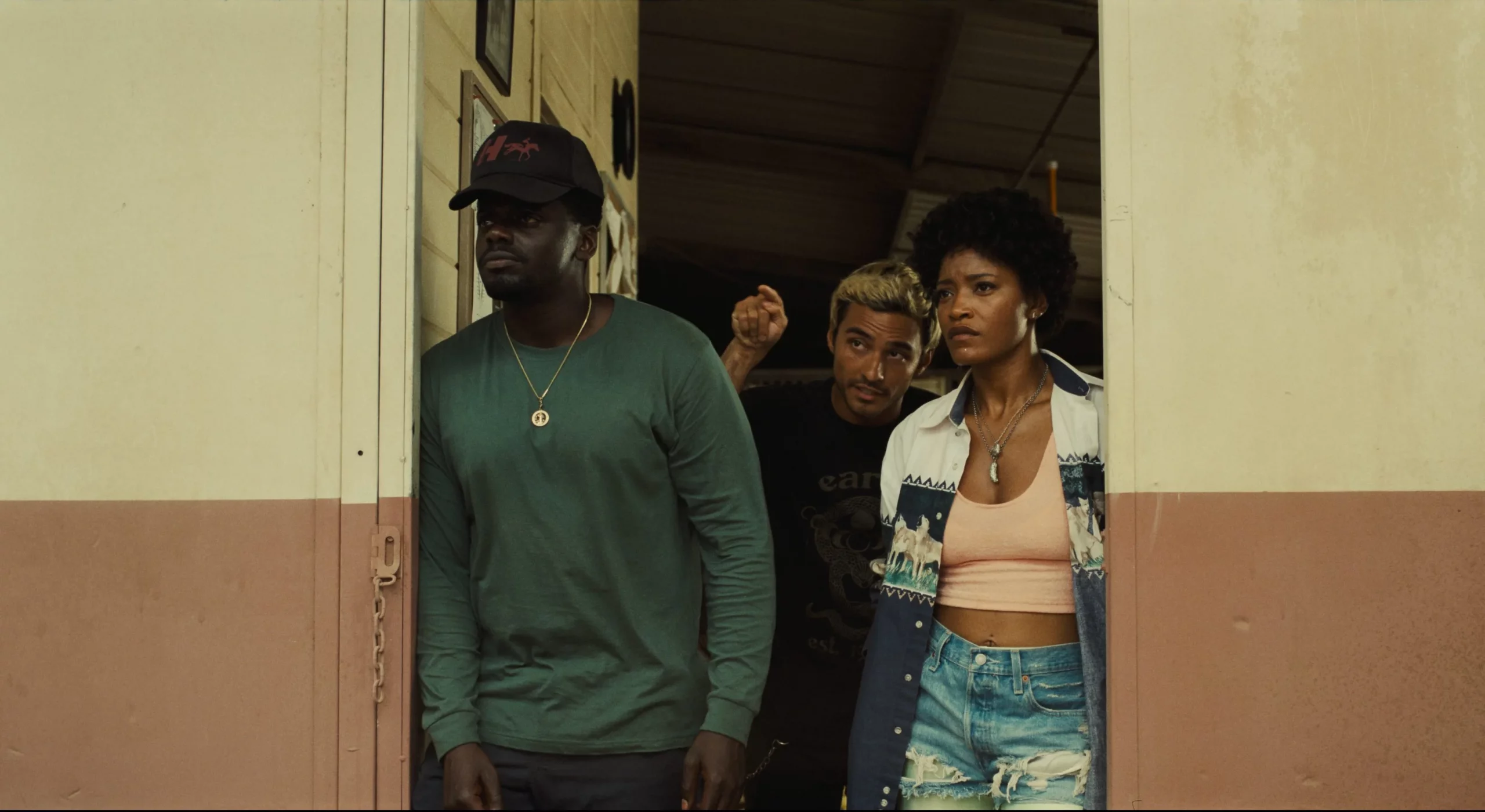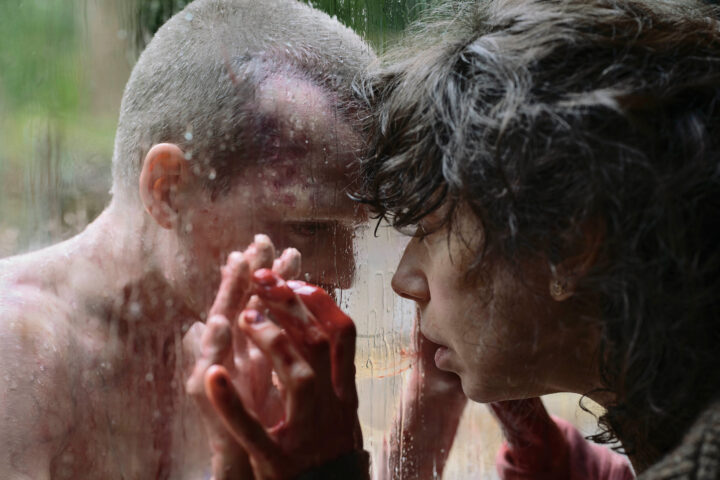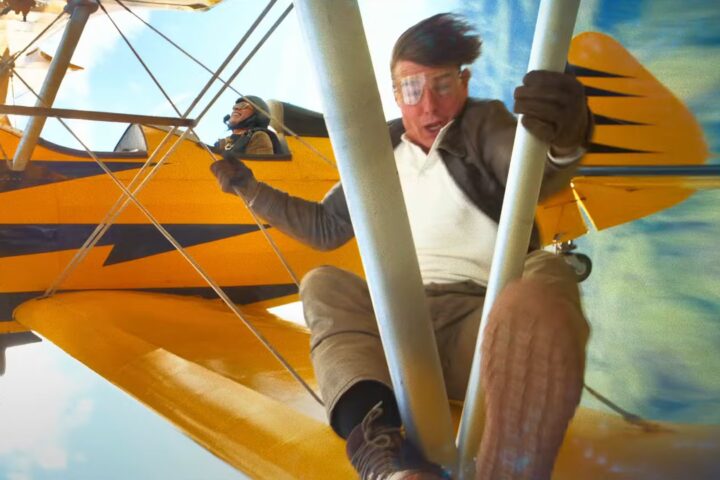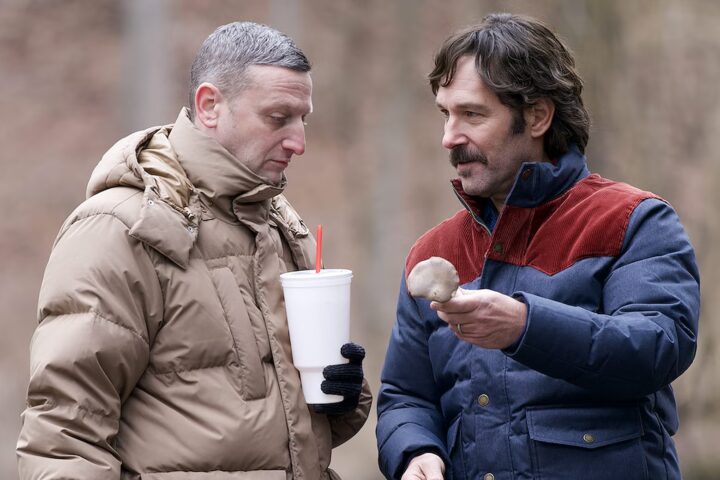When you are as conceptually audacious and button-pushing provocative a filmmaker as Jordan Peele (and who else is?), a perhaps unfair onus accompanies everything you touch—will it be scarier, sharper, more surprising or socially conscious than last time out? Will the twist be a good one?
Certainly such narrative burdens were inadvertently born after the surprise success of Peele’s knockout, Oscar-winning 2017 social allegory thriller Get Out, a satire that uncovered racism lurking where we would least expect it—in the hearts of affluent, Obama-voting, white suburban liberals. In 2019, Peele unveiled his sophomore picture, Us, with a herculean performance from Oscar-winner Lupita Nyong’o in a macabre story of a middle-class California family on a summer vacation only to be stalked by their doppelgangers, another thriller with a social bent suggesting a subjugated race rising up to claim its place out of the shadows; those shadows, which include our own secrets and shadow sides, were cannily eviscerated via the picture’s notion that what is held down will revolt; what we suppress will eventual come to claim us.
What Peele does so effortlessly and with such genius is craft pictures that thrill on a surface level for popcorn audiences yet are mounted and driven by richly considered commentaries on American culture, mores, values and, of course, damning transgressions. But they are entertainments first, not polemics, and they never become lectures. That’s a showman for you, and that skillful balancing act between wowing audiences and telling them something is Peele’s forte.
His new picture, Nope, is certainly his largest in scale and expense, and perhaps most ambitiously constructed, and when taken literally feels, for a while, like the perfect summer movie—it has humor, adventure, a UFO and aliens. This time, Peele is using those elements to examine a number of cultural biases and fascinations both legacy and of the modern era. The results, on the whole, are middling, suggesting a wham-bam piece of entertainment that by its second half offers diminishing returns as a compelling story, lacks thrills (at least the kind we expect) and ends up saying something slightly muddled.
Keke Palmer and Daniel Kaluuya (an Oscar-winner for his Fred Hampton turn in Judas and the Black Messiah) play brother and sister Emerald and O.J., who when we meet them are on a Hollywood studio set sharing their family history, borne of their father’s (Keith David) business providing horses to studio productions for decades of moviemaking. Yet the work has dwindled and the pair are in dire straits, and in danger of losing the desert ranch altogether. Things are so bad that the pair is selling horses to a carnival showman at a western village tourist spot, one Ricky “Jupe” Park (Steven Yeun, good as always), the grown-up child star of a notorious former TV sitcom that ended with its star—a trained ape named Gordy living amongst a milquetoast family—going berserk to both murdering most of the cast during taping.
Enter an apparent and mysterious spaceship hiding in the clouds above their land, an inexplicable wonder that hatches a plan—Emerald and O.J. believe that if they can get the perfect photograph or video of the phenomenon their fortunes will be reversed and they’ll achieve cultural renown and end up on Oprah.
In this mix comes a very well-conceived funnyman character named Angel (Brandon Perea), a Fry’s Electronics employee who sells the pair a cache of surveillance equipment and throws himself into the deal for installation; Palmer and Perea are very good together, and someone ought to cast them opposite each other in another picture. And the venerable, decades-working character actor Michael Wincott also shows up as the famous Hollywood cinematographer hired by the siblings to film the extraterrestrial goings-on.
The remote setting and nightly visitations from the mysterious U.F.O. call to mind two other films, M. Night Shyamalan’s Signs and Steve Spielberg’s landmark Close Encounters of the Third Kind, apt comparisons in the set-up though Nope ultimately lacks the suspense of the former and wonder of the latter, Peele after something else altogether.
This all builds to a final act which, while expertly mounted, does not quite deliver as science fiction, horror or adventure, instead perfunctorily marching toward an acceptable yet not quite gripping denouement. It is frustrating when an ambitious movie with a superb first hour loses steam, and NOPE is ultimately more a movie about a sophisticated subject afield from why the audience showed up—for thrills.
Nope‘s first half is so engaging, creepy, suspenseful and filled with such fun characters that when the film reveals its central mystery and cloaks it in a so-so metaphor about the consequences of our need for public spectacle (right from the opening quote)—to both capture a perfect shot of one or gawk upon another as part of a content and event-obsessed culture (there’s even a TMZ-related character in the final sequence)—it feels as if it has no place to really go as a story.
Yet it has considerable technical chops and merits, including terrific turns form Palmer (proving she can do anything from action to comedy to drama to thrills) and Chicagoan Perea (making great fun out of every line). As the best DP in the business, Wincott has a steely comedic gravitas, enjoyably riding the line between serious and spoof.
It’s easy to appreciate the picture’s pointed satirical declarations about the movie industry: that people of color are often cast to the wayside in a white dominated industry, that today’s dependence on digital movie technology should be discarded in favor of traditional shot-on-film cameras, that artifice in movies today is no substitute for the real deal (a living horse is amusingly replaced by a non-acceptable, fake replica), and that perhaps if we all just looked away from bombastic, media-driven spectacles and paid attention to the reality in front of us we might just be safer and healthier.
Yet resonant themes aside, heavier lifting was needed here to deliver on the face-value story—a watch the skies adventure that unlike Peele’s best work, here can feel merely deployed it in service of Peele’s thematic interests. This deflation makes Nope somewhat less than satisfying as a story. It’s the first Jordan Peele film I have little desire to revisit.
2 1/2 stars



